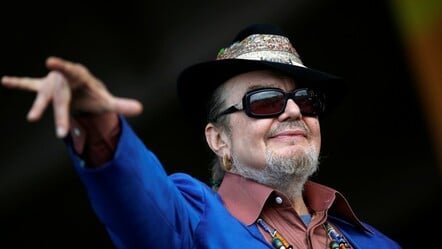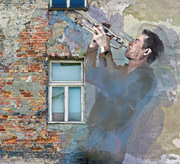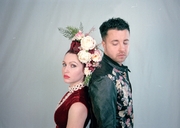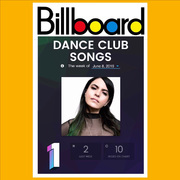New York, NY (Top40 Charts) Mac "Dr. John" Rebennack, the nine-fingered New Orleans-based pianist, singer, songwriter and session musician best known for his 1973 top 10 hit "Right Place, Wrong Time," has died. He was 77. Dr John a member of the Rock & Roll Hall of Fame and a six-time Grammy winner, died
Thursday morning from a heart attack, said publicist and social media manager
Karen Beninato.
Biography:
Malcolm John Rebennack (November 20, 1941 - June 6, 2019), better known by his stage name Dr. John, was an American singer and songwriter. His music combined blues, pop, jazz, boogie-woogie and rock and roll.
Active as a session musician from the late 1950s until his death, he gained a following in the late 1960s after the release of his album Gris-Gris and his appearance at the Bath Festival of Blues and Progressive Music. He performed a lively, theatrical stage show inspired by medicine shows, Mardi Gras costumes and voodoo ceremonies. Rebennack recorded 32 studio albums and 6 live albums, as well as contributing to thousands of other musicians' recordings. In 1973 he achieved a top-10 hit with "Right Place, Wrong Time".
The winner of six Grammy Awards, Rebennack was inducted into the Rock and Roll Hall of Fame by singer
John Legend in March 2011. In May 2013, Rebennack received an honorary doctorate of fine arts from Tulane University.
Rebennack was born in New Orleans on November 20, 1941 of French heritage. Growing up in the 3rd Ward of New Orleans, he found early musical inspiration in the minstrel tunes sung by his grandfather and a number of aunts, uncles, sister and cousins who played piano. He did not take music lessons before his teens and endured only a short stint in choir before getting kicked out. His father, the owner of an appliance store and record shop, exposed him as a young boy to jazz musicians King
Oliver and Louis Armstrong, who later inspired his 2014 release, Ske-Dat-De-Dat: The
Spirit of Satch. Throughout his adolescence his father's connections enabled him access to the recording rooms of rock artists, including
Little Richard and Guitar Slim. Later he began to perform in New Orleans clubs, mainly on guitar, and played on stage with various local artists.
When he was about 13 years old, Rebennack met Professor Longhair. Impressed by the professor's flamboyant attire and striking musical style, Rebennack soon began performing with him, and began his life as a professional musician.
At age 16 Rebennack was hired by Johnny
Vincent as a producer at Ace Records. There, he gained experience working with many artists, including
James Booker and Earl King. While a struggling student at Jesuit High School, he was already playing in night clubs, something the Jesuit fathers disapproved of. They told him to either stop playing in clubs or leave the school. It was clearly a case of, "Right place, wrong time." Rebennack left Jesuit, and from then on focused entirely on music.
In late 1950s New Orleans, Rebennack gigged with local bands including Mac Rebennack and the Skyliners, (Paul Staele/Dennis "Bootsie" Cuquet, drums; Earl Stanley, bass; Charlie Miller, trumpet; Charlie Maduell, sax; Roland "
Stone" LeBlanc, vocals), Frankie Ford and the Thunderbirds, and Jerry Byrne and the Loafers. He had a regional hit with a Bo Diddley-influenced instrumental called "Storm Warning" on Rex Records in 1959. At A&R he and Charlie Miller recorded monophonic singles on 45s for Johnny
Vincent and Joe
Corona for local labels Ace, Ron, and Ric. He oversaw the rhythm section while Miller wrote the horn arrangements and headed up the horns. This continued until Miller moved to New York to study music formally.
Rebennack's career as a guitarist was stunted around 1960, when the ring finger on his left (guitar fretting) hand was injured by a gunshot during an incident at a Jackson, Mississippi gig. After the injury, Rebennack concentrated on bass guitar before making piano his main instrument, developing a style influenced by Professor Longhair.
Rebennack became involved in illegal activities in New Orleans, using and selling narcotics and running a brothel. He was arrested on drug charges and sentenced to two years in a federal prison at Fort Worth, Texas. His sentence ended in 1965 and he left for Los Angeles.
Once settled in Los Angeles he became a "first call" session musician in the Los Angeles studio scene in the 1960s and 1970s and was part of the so-called "Wrecking Crew" stable of studio musicians. He provided backing for
Sonny & Cher (and some of the incidental music for Cher's first film, Chastity), for Canned Heat on their albums Living the Blues (1968) and
Future Blues (1970), and for Frank Zappa and the Mothers of Invention on Freak Out! (1966).
As a young man Rebennack was interested in New Orleans voodoo, and in Los Angeles he developed the idea of the
Dr. John persona for his old friend Ronnie Barron, based on the life of Dr. John, a Senegalese prince, a medicinal and spiritual healer who came to New Orleans from Haiti. This free man of color lived on Bayou Road and claimed to have 15 wives and over 50 children. He kept an assortment of snakes and lizards, along with embalmed scorpions and animal and human skulls, and sold gris-gris, voodoo amulets that protected the wearer from harm.
Rebennack decided to produce a record and a stage show based on this concept, with
Dr. John serving as an emblem of New Orleans heritage. Although initially the plan was for Barron to front the act assuming the identity of "Dr. John", while Rebbenack worked behind the scenes as Dr. John's writer/musician/arranger/producer, this didn't come to pass. Barron dropped out of the project, and Rebennack took over the role (and identity) of Dr. John. Gris-Gris became the name of Dr. John's debut album, representing his own form of "voodoo medicine".
1968-1971: Dr. John, the Night Tripper
Beginning in the late 1960s, Rebennack gained fame as a solo artist after adopting the persona of "Dr. John, The Night Tripper". Dr. John's act combined New Orleans-style rhythm and blues with psychedelic rock and elaborate stage shows that bordered on voodoo religious ceremonies, including elaborate costumes and headdress. In 1970, when
Howard Smith asked him where the name "Dr. John the Night Tripper" came from, he responded, "Before that I was Professor Bizarre. Cats used to call me things like "Bishop" or "Governor" or somethin' but they started callin' me "
Doctor" for a while, so I just hung it on myself for keeps." On the earliest
Dr. John records, the artist billing was "Dr. John, The Night Tripper", while the songwriting credits billed him as "Dr. John Creaux". Within a few years the "Night Tripper" subtitle was dropped, and Rebennack resumed using his real name for writing and producing/arranging credits.
Gris-Gris, his 1968 debut album combining voodoo rhythms and chants with the New Orleans music tradition, was ranked 143rd on Rolling Stone′s "The 500 Greatest Albums of All Time" list. Three more albums, Babylon (1969), Remedies (1970) and The Sun, Moon, and Herbs (1971), were released in the same vein as Gris-Gris.
During early to mid-1969,
Dr. John toured extensively, backed by supporting musicians Richard "Didymus" Washington (congas), Richard Crooks (drums),
David L. Johnson (bass), Gary Carino (guitar), and singers Eleanor Barooshian,
Jeanette Jacobs from The Cake, and Sherry Graddie. A second lineup formed later in the year for an extensive tour of the East Coast with Crooks and Johnson joined by Doug Hastings (guitar) and Don MacAllister (mandolin). Also in 1969,
Dr. John contributed to the
Music from Free Creek "supersession" project, playing on three tracks with Eric Clapton. Washington and Crooks also contributed to the project.
By the time The Sun, Moon, and Herbs was released, he had gained a notable cult following, which included artists such as
Eric Clapton and Mick Jagger, who both took part in the sessions for that album. This album served as a transition from his Night Tripper voodoo, psychedelic persona to one more closely associated with traditional New Orleans R&B and funk. His next album, Dr. John's Gumbo, with drummer Fred Staehle serving as the band's backbone, proved to be a landmark recording and is one of his most popular to this day.
Along with Gris-Gris,
Dr. John is perhaps best known for his recordings in the period 1972-74. 1972's Dr. John's Gumbo, an album covering several New Orleans R&B standards with only one original, is considered a cornerstone of New Orleans music. In his 1994 autobiography, Under a Hoodoo Moon,
Dr. John writes, "In 1972, I recorded Gumbo, an album that was both a tribute to and my interpretation of the music I had grown up with in New Orleans in the late 1940s and 1950s. I tried to keep a lot of little changes that were characteristic of New Orleans, while working my own funknology on piano and guitar." The lead single from the album, "
Iko Iko", broke into the Billboard Hot 100 singles chart, eventually reaching #71. In 2003, Dr. John's Gumbo was ranked number 404 on Rolling Stone magazine's list of the 500 greatest albums of all time.
With Gumbo,
Dr. John expanded his career beyond the psychedelic voodoo music and theatrics which had driven his career since he took on the
Dr. John persona, although it has always remained an integral part of his music and identity. It was not until 1998's Anutha Zone that he again concentrated on this aspect of his music wholly for a full album. "After we cut the new record", he wrote, "I decided I'd had enough of the mighty-coo-de-fiyo hoodoo show, so I dumped the Gris-Gris routine we had been touring with since 1967 and worked up a new act—a Mardi Gras revue featuring the New Orleans standards we had covered in Gumbo."
In early 1973
Thomas Jefferson Kaye produced an album featuring a collaboration with Dr. John, Mike Bloomfield and John Paul Hammond. This album, Triumvirate, was recorded in Columbia Studios, San Francisco, and Village Recorders, Los Angeles.
In 1973, with Allen Toussaint producing and The Meters backing,
Dr. John released the seminal New Orleans funk album In the Right Place. In the same way that Gris-Gris introduced the world to the voodoo-influenced side of his music, and in the manner that Dr. John's Gumbo began his career-long reputation as an esteemed interpreter of New Orleans standards, In the Right Place established
Dr. John as one of the main ambassadors of New Orleans funk. In describing the album,
Dr. John states, "The album had more of a straight-ahead dance feel than ones I had done in the past, although it was still anchored solid in R&B."[citation needed] It rose to #24 on the Billboard album chart. In July 1973, the single "Right Place Wrong Time" peaked at #9 on the Billboard Hot 100 singles chart, as well as peaking at #19 on the Hot Soul Singles chart. A second single, "Such a Night", peaked at #42. Still in heavy rotation on most classic rock stations, "Right Place Wrong Time" remains his most recognized song. Artists such as Bob Dylan, Bette Midler, and Doug Sahm contributed single lines to the lyrics, which lists several instances of ironic bad luck and failure.
Dr. John attempted to capitalize on In the Right Place's successful formula, again collaborating with Allen Toussaint and The Meters, for his next album, Desitively Bonnaroo - part of which a Tennessee festival took as its name - released in 1974. Although similar in feel to In the Right Place, it failed to catch hold in the mainstream as its predecessor had done. It did produce the single "(Everybody Wanna Get Rich) Rite Away," which peaked at #92 on the Billboard Hot 100 chart, and to date is the last time he hit the Hot 100. It was his last pure funk album until 1994's Television, although like his voodoo and traditional New Orleans R&B influences, funk has continued to heavily influence most of his work to the present day, especially in his concerts.
In the mid-1970s
Dr. John began an almost 20-year-long collaboration with the R&R Hall of Fame/Songwriters Hall of Fame writer Doc Pomus, to create songs for Dr. John's releases City
Lights and Tango Palace, and for B.B. King's
Stuart Levine-produced There Must Be a Better World Somewhere, which won a Grammy for Best Ethnic or Traditional Recording in 1982.
Dr. John also recorded "I'm On a Roll" - the last song written with Pomus prior to his death in 1991 - for the now out-of-print Rhino/Forward Records 1995 tribute to Pomus titled Til the Night Is Gone: A Tribute to Doc Pomus. The tribute included covers of Pomus-penned songs by Bob Dylan, John Hiatt, Shawn Colvin, Brian Wilson, The Band, Los Lobos, Dion, Rosanne Cash, Solomon Burke, and Lou Reed. According to Pomus' daughter,
Dr. John and her father were very close friends as well as writing partners.
Dr. John delivered one of a number of eulogies and performed with singer Jimmy Scott at Pomus' funeral on March 17, 1991 in New York City.
On Thanksgiving Day 1976 he performed "Such a Night" at the farewell concert for The Band, which was filmed by
Martin Scorsese and released as The Last Waltz. In 1979, he collaborated with the legendary Professor Longhair on Fess's (another nickname for Henry Byrd) last recording Crawfish Fiesta, as a guitarist and co-producer. The album was awarded the first W.C. Handy Blues Album of the Year in 1980, and was released shortly after Longhair's death in January 1980.
By the mid-1970s, Rebennack had begun focusing on a blend of music that touched on blues, New Orleans R&B, Tin Pan Alley standards and more. In 1975, his manager, Richard Flanzer, hired producer Bob Ezrin, and Hollywood Be Thy Name was recorded live at Cherokee Studios in Los Angeles, California. The studio was transformed into a New Orleans nightclub for the sessions. In 1981 and 1983,
Dr. John recorded two solo piano albums for the Baltimore-based Clean Cuts label. In these two recordings he played many of his own boogie-woogie compositions.
Dr. John was also a prominent session musician throughout his career. He played piano on the Rolling Stones' 1972 song "Let It Loose", and backed
Carly Simon and
James Taylor in their duet of "
Mockingbird" in 1974, and
Neil Diamond on Beautiful Noise in 1976. He also contributed the song "More and More" to Simon's Playing Possum album. He played on three songs on
Maria Muldaur's 1973 solo debut album, including his composition "Three Dollar Bill". He sang on four songs and played piano on two songs on Muldaur's 1992 Louisiana Love Call. He was co-producer on Van Morrison's 1977 album A Period of Transition and also played keyboards and guitar. He contributed three songs as writer or co-writer ("Washer Woman", "The Ties That Bind", and "That's My Home") and also played guitar and keyboards on Levon Helm's 1977 release, Levon Helm and the RCO Allstars. He performed on the March 19, 1977 episode of NBC's Saturday Night Live.
He played keyboards on the highly successful 1979 solo debut album by Rickie Lee Jones. He toured with Willy DeVille and contributed to his albums Return to
Magenta (1978), Victory Mixture (1990), Backstreets of Desire (1992), and Big Easy Fantasy (1995). In 1997 he contributed piano and vocals to the
Spiritualized song "Cop Shoot Cop" which appears on their album, Ladies and Gentlemen We Are Floating in Space. His music was featured in many films, including "New Looks" in
National Lampoon's European Vacation in 1985 and "Such a Night" in Colors in 1988. In 1992,
Dr. John released the album Goin' Back to New Orleans, which included many classic songs from New Orleans. Many great New Orleans-based musicians, such as
Aaron Neville, the Neville brothers, Al Hirt and Pete Fountain, backed up
Dr. John on this album. He also performed as the first American artist at the Franco Follies festival in 1992.
Dr. John's longtime confidant and former personal manager, Paul Howrilla, was responsible for moving
Dr. John from Los Angeles to New York and securing "crossover" work, as well as modifying Dr. John's image from the 1970s to the 1990s. Paul Howrilla was the brains behind the scenes, as
Dr. John would attest. They remained close friends.
Dr. John also provided vocals for Popeyes Chicken & Biscuits' "Luv dat chicken ..." jingle, as well as the theme song ("My Opinionation") for the early-1990s television sitcom Blossom. A version of "Do You Know What It Means To Miss New Orleans" with
Harry Connick, Jr. was released on Connick's album 20 and VHS Singin' & Swingin' in 1990.
Dr. John moved back to Louisiana in 2009.
His movie credits included
Martin Scorsese's documentary The Last Waltz, in which he joined the Band for a performance of his song "Such a Night", the 1978 Beatles-inspired musical "
Sgt. Pepper's Lonely Hearts Club Band", and Blues Brothers 2000, in which he joined the fictional band the Louisiana Gator Boys to perform the songs "How Blue Can You Get" and "New Orleans". His version of the Donovan song "Season of the Witch" was also featured in this movie and on the soundtrack. In 1996, he performed the song "Cruella de Vil" during the end credits of the film 101 Dalmatians.
He wrote and performed the score for the film version of John Steinbeck's Cannery Row released in 1982. His hit song "Right Place Wrong Time" was used extensively in the movies Dazed and Confused,
Sahara and the series American Horror Story: Coven.
Dr. John was also featured in several video and audio blues and New Orleans piano lessons published by Homespun Tapes. Other documentary film scores include the New Orleans dialect film Yeah You Rite! (1985) and American Tongues in 1987.
Between July and
September 1989,
Dr. John toured in the first Ringo Starr & His All-Starr Band, alongside Levon Helm, Rick Danko, Nils Lofgren, Jim Keltner, Joe Walsh, Billy Preston and Clarence Clemons. The tour produced the 1990 live album Ringo Starr and His All-Starr Band.
In 1997, he appeared on the charity single version of Lou Reed's "
Perfect Day". In the same year, he played piano on the
Spiritualized song "Cop Shoot Cop ...", from their critically acclaimed album Ladies and Gentlemen We Are Floating in Space. Frontman Jason Pierce, a fan of Dr. John's music, reciprocated by guesting on Dr. John's 1998 album Anutha Zone along with drummer Damon Reece and guitarist Thighpaulsandra. He recorded the live album Trippin' Live with drummer Herman V.Ernest III,
David Barard, bass, Tommy Moran, guitar, trumpeter Charlie Miller, tenor Red Tyler, and baritone sax Ronnie Cuber.
In
September 2005, he performed
Bobby Charles' "Walkin' to New Orleans", to close the Shelter from the Storm: A Concert for the Gulf Coast telethon. This was for the relief of Hurricane Katrina victims, following the devastation of his hometown of New Orleans. In November 2005, he released a four-song EP, Sippiana Hericane, to benefit New Orleans Musicians Clinic, Salvation Army, and the Jazz Foundation of America. On February 5, 2006, he joined fellow New Orleans native
Aaron Neville,
Detroit resident
Aretha Franklin and a 150-member choir for the national anthem at Super Bowl XL as part of a pre-game tribute to New Orleans. On February 8, 2006, he joined Allen Toussaint, Bonnie Raitt, The Edge, and Irma
Thomas to perform "We Can Can" as the closing performance at the Grammy Awards of 2006. In 2014 he performed at the NBA All Star Game as did Pharell Williams and Janelle Monáe.
On May 12, 2006,
Dr. John recorded a live session at Abbey Road Studios for Live from Abbey Road. His performance was aired alongside those of
LeAnn Rimes and
Massive Attack on the Sundance Channel in the USA and Channel 4 in the UK. He has performed the opening theme music to the PBS children's program Curious George, broadcast since 2006.
On July 30, 2006,
Dr. John performed a solo piano benefit for New Orleans composer and arranger Wardell Quezergue (King Floyd's "
Groove Me") at a New Orleans Musicians Relief Fund benefit at the
Black Orchid Theatre in Chicago. Special guest Mike Mills of
R.E.M. was in attendance, along with an all-star funk band.
Dr. John performed the theme music to the Fox drama K-Ville. In 2007, he contributed to Goin' Home: A Tribute to Fats Domino. He contributed "Don't Leave Me This Way". In January 2008,
Dr. John was inducted into The Louisiana
Music Hall of Fame. Later, in February, he performed at All-Star Saturday Night, part of the NBA All-Star Weekend hosted by New Orleans. Also in 2008,
Dr. John released his Grammy Award-winning City that Care Forgot about Hurricane Katrina's devastation in New Orleans.
In the 2009 Disney film The Princess and the Frog,
Dr. John sang the opening tune, "Down in New Orleans". He reigned as King of the Krewe du Vieux for the 2010 New Orleans Mardi Gras season. On May 13, 2010,
Dr. John played alongside The
Roots on Late Night with
Jimmy Fallon (episode 246) and was warmly greeted by Jimmy's first guest, Keith Richards. In June 2010, Dr John played at the Glastonbury festival, Shepton Mallet, UK.
Dr. John played keyboards and had a major role in shaping Gregg Allman's 2011 album Low Country Blues, which was produced by T-Bone Burnett. In 2011, he collaborated with
Hugh Laurie on the song "After You've Gone" on Laurie's album Let Them Talk. Also in 2011, Dr. John, Allen Toussaint and The Meters performed Desitively Bonnaroo at the Bonnaroo
Music and Arts Festival in Manchester, Tennessee, as part of the festival's tenth year celebration. The name of the festival was taken from the 1974
Dr. John album, Desitively Bonnaroo. The same year he was inducted into the Rock & Roll Hall of Fame along with Neil Diamond, Alice Cooper,
Darlene Love and Tom Waits.
In 2012,
Dr. John released Locked Down, a collaboration with Dan Auerbach of The
Black Keys, who produces and plays guitar. The album received very positive reviews for its raw, Afrobeat-influenced sound. The Los Angeles Times said that it showed
Dr. John "exiting a period of relative creative stagnation by creating something magical, the embodiment of everything he's done but pushed in a clear new direction". It won a Grammy Award, as did Auerbach for producing.
In 2014,
Dr. John released a Louis Armstrong tribute album, Ske-Dat-De-Dat: The
Spirit of Satch, on Concord Records USA and Proper Records in Europe.
Dr. John described the inspiration of the album as Louis Armstrong coming to him in a dream and telling him "do my music your way". The Los Angeles Times said, "Tribute albums come and go, but it's a real rarity that can snap a listener to attention like Dr. John's new salute to jazz founding father Louis Armstrong." That spring, "The Musical Mojo of Mac", a New Orleans concert to honor Dr. John, was introduced by Brian Williams and kicked off by
Bruce Springsteen singing "Right Place, Wrong Time", with
Dr. John and an all-star band which included event producer Don Was on bass.
Dr. John recorded "Let 'Em In" in the
Paul McCartney tribute album The Art of McCartney. "It's a wonder to behold, as the ageless
Dr. John re-envisions "Let 'Em In" as a laconic come on, an invitation to party or maybe something more, once a few more glasses have been raised", wrote Something Else. "At the same time, he ends up lacing the song with darker feelings, as well."
Foo Fighters' Dave Grohl interviewed
Dr. John about music in the New Orleans-themed episode of their HBO series Sonic Highways "(including the hypnotic reveal of Dr. John's given name)", wrote a Decider reviewer.
From 2014 to 2016,
Dr. John performed with The Nite Trippers, including at a Hollywood Bowl tribute "Yes We Can Can" for his late friend Allen Toussaint on July 20, 2016. Also performing Allen Toussaint compositions were New Orleans artists Irma Thomas,
Cyril Neville, the band Galactic, and the Allen Toussaint Band.
In 2016, double album and DVD of the concert, The Musical Mojo of Dr. John: Celebrating Mac and his Music, was released.
In 2017, Members of Dr. John's band The Gris Gris Krewe with music director Roland Guerin performed "Right Place Wrong Time" in the video kicking off the 2017 NBA All-Star Game. Also in 2017,
Dr. John was a headliner on The Last Waltz 40th Anniversary Tour with
Music Directors
Warren Haynes and Don Was, reprising his "Such a Night" performance from the original concert and film with The Band.
Also in 2017, his first single "Storm Warning" recorded as a tribute to Bo Diddley, was featured the Logan Lucky soundtrack; in April he joined
John Legend (who inducted him into the Rock Hall) and
Jon Batiste on The Late Show with Stephen Colbert, and he appeared in Tig Notaro's critically acclaimed Amazon TV series One Mississippi.
On November 1, 2017,
Dr. John celebrated Mac Month as proclaimed by the New Orleans City Council in a reception at Napoleon House, and his birthday was proclaimed
Dr. John Day in the City of New Orleans for the fact that he "rose to international recognition for his musical funkitude in performing, writing and producing." Louisiana Governor John Bel Edwards also issued a Statement of Recognition to
Dr. John for "embodying the culture of the state from New Orleans to the Bayou."
Dr. John's birth date was corrected in 2018 when his hometown newspaper, The Times-Picayune, discovered in their records that he was actually born on November 20, 1941 as opposed to the commonly listed November 21, 1940. He added a year to his age as an underage prodigy with a local hit, so he could get into gigs.
Dr. John had a heroin addiction; however, in December 1989, he completed his final rehabilitation stint with the help of Narcotics Anonymous and remained addiction free the rest of his life.
Dr. John was married twice and told the New York Times that he had "a lot" of children.
On June 6, 2019,
Dr. John died of a heart attack. His family announced through his publicist that he died at break of day, and "He created a unique blend of music which carried his home town, New Orleans, at its heart, as it was always in his heart."
The winner of six Grammy Awards, Rebennack was inducted into the Rock and Roll Hall of Fame by singer
John Legend in March 2011.
In May 2013 Rebennack received an honorary doctorate of fine arts from Tulane University.
Filmography:
• The Last Waltz (1978), as himself (performs Such A Night)
• Blues Brothers 2000 (1998), as himself
• Top Chef (2013), as himself, Guest Judge
• Treme (HBO Series), as himself
• One Note at a Time (2018) - as himself
• Touched by an
Angel - as himself (2 episodes)
Discography:
• Gris-Gris (1968) (Atco 33-234 (monaural)/SD 33-234 (stereo))
• Babylon (1969) (Atco, SD 33-270)
• Remedies (1970) (Atco, SD 33-316)
• The Sun, Moon & Herbs (1971) (Atco, SD 33-362)
• Dr. John's Gumbo (1972) Atco, SD 7006)
• In the Right Place (1973) (Atco, SD 7018)
• Desitively Bonnaroo (1974) (Atco, SD 7043)
• Cut Me While I'm Hot: The Sixties Sessions (1975) (DJM, 2019) [session work compilation][citation needed]
• City
Lights (1979) (Horizon/A&M, SP-732)
• Tango Palace (1979) (Horizon/A&M, SP-740)
• Dr. John Plays Mac Rebennack, Vol. 1 (1981) (Clean Cuts, 705; CD: 720)
• Love Potion [AKA Loser for You Baby] (1982) (Accord, 7118)
• The Brightest
Smile In Town (Dr. John Plays Mac Rebennack, Vol. 2) (1983) (Clean Cuts, 707; CD: 722)
• In a Sentimental Mood (1989) (Warner Bros., 25889)
• ZuZu Man (1989) (Trip Records, TLP-9518) [studio outtakes compilation]
• Goin' Back to New Orleans (1992) (Warner Bros., 26940)
• Brer Rabbit and Boss Lion (1992) (Rhino, R2-70496/97) (children's)
• Mos' Scocious: The
Dr. John Anthology (1993) (Rhino, 71450) 2-CD set
• Television (1994) (GRP/MCA, 4024)
• Afterglow (1995) (Blue Thumb/GRP/MCA, 7000)
• Anutha Zone (1998) (Virgin/EMI, 46218)
• Duke Elegant (2000) (Blue Note/Parlophone/EMI, 23220) [a tribute to Duke Ellington]
• Creole Moon (2001) (Blue Note/Parlophone/EMI, 34591)
• N'Awlinz: Dis Dat or d'Udda (2004) (Blue Note/Parlophone/EMI, 78602)
• Sippiana Hericane (2005) (Blue Note/Parlophone/EMI, 45687)
• Mercernary (2006) (Blue Note/Parlophone/EMI, 54541) [a tribute to Johnny Mercer]
• Dr. John Plays Mac Rebennack, Vol. 2 (2006) (Clean Cuts; CD: 722)
• City That Care Forgot (2008) (429/Savoy, 17703)
• Curious George: A Very Monkey Christmas -
Music From The Motion Picture (2009) (429/Savoy, 17748)
• Tribal (2010) (429/Savoy, 17803)
• Locked Down (2012) (Nonesuch/WEA, 530395)
• Ske-Dat-De-Dat: The
Spirit of Satch (2014) (Concord/UMe, 35187)
• Hollywood Be Thy Name (1975) (United Artists, UA-LA552G)
• Such a Night! Live in London (1984) (Spindrift, SPIN 107)
• On a Mardi Gras Day (1990) (Great Southern, GS-11024) - with Chris Barber
• Trippin' Live (1997) (Wind-Up/Surefire, 13047)
• All By Hisself: Live at The
Lonestar (2003) (Skinji Brim/Hyena, 9317) [recorded December 22-23, 1986]
• The Musical Mojo of Dr. John: Celebrating Mac and His
Music (2016) (Concord/UMe, 00216 [UPC: 888072009820]) 2 CD [recorded May 3, 2014]
• Bluesiana Triangle, with Art Blakey and
David Newman (Windham Hill, 1990)
• Bluesiana II, with
David Newman and Ray Anderson (Windham Hill, 1991)
























